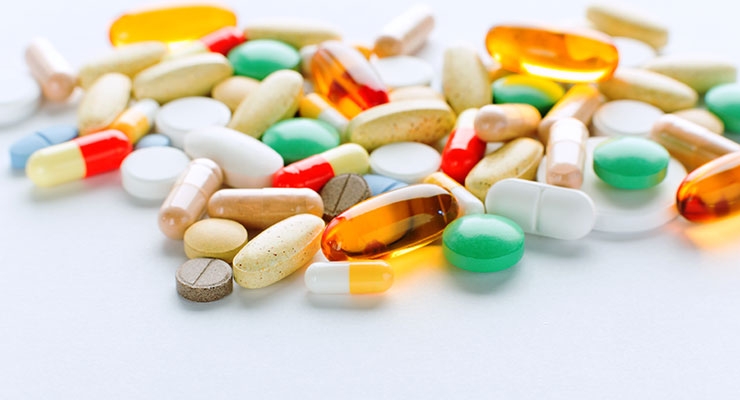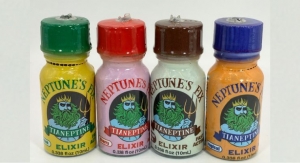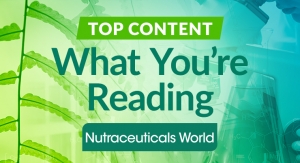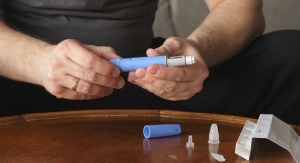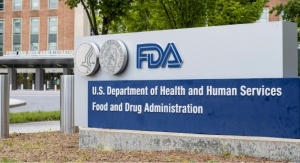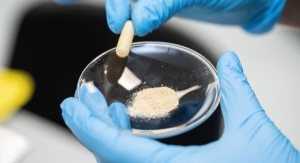Sean Moloughney, Editor01.26.16
Nearly a year since the New York Attorney General investigation into herbal dietary supplements touched off a wave of negative attention, the nutraceuticals industry continues to deal with criticism. The latest iteration comes from a segment aired on PBS’ “Frontline” on Jan. 19.
The documentary, titled “Supplements and Safety,” was a collaboration between “Frontline,” the New York Times and the Canadian Broadcasting Corporation (CBC). A similar version aired in Canada on CBC’s “The Fifth Estate” in November 2015.
CBC “Marketplace” had also reported in November on results of lab testing it commissioned on fish oil, vitamin C and protein powder supplements, claiming certain products failed to live up to label claims. However, Marketplace recently retracted a portion of the report.
Generally, the “Frontline” segment questioned the safety and efficacy of common supplements, including multivitamins and fish oil, and suggested that a lack of regulation has allowed companies to market products that haven’t been proven.
Safety Matters
The documentary presented case studies in which products were linked to adverse health reactions. Two products mentioned in the film were adulterated/contaminated (in that they contained unapproved ingredients); another product contained ephedra, which FDA banned from use in dietary supplements in 2004 after it was linked to health problems.
“These cases indicate not a need for more stringent regulations, but rather a need for better enforcement of the laws already on the books, which are sufficient to remove any unsafe product from the market,” said Gretchen DuBeau, executive and legal director for the Alliance for Natural Health USA.
American Herbal Products Association (AHPA) President Michael McGuffin said the regulated supplement industry is committed to selling safe products and to complying with federal laws that ensure product safety.
Industry “has a long history of adherence to current rules and advocating for strong enforcement of the rules. The content and tone of the ‘Frontline’ segment presents a skewed portrayal of the supplement marketplace by ignoring the majority of supplement companies that ensure their products are safe and are properly manufactured and labeled, and who often go beyond what is required by federal law.”
"Any portrayal of the supplement marketplace that omits or belittles the existing laws and regulations and the commitment of the best supplement marketers is inherently misleading," Mr. McGuffin added.
The “Frontline” segment’s host interviewed former director of FDA’s Division of Dietary Supplement Daniel Fabricant, PhD, who is now executive director and CEO of the Natural Products Association (NPA), Washington, D.C.
Dr. Fabricant argued that the U.S. has the safest dietary supplement and natural product supply in the world thanks to the current regulatory regime. “There are strong regulations in place to protect consumers and punish criminals,” he said in a press release issued by NPA. “During my tenure as the head of the Dietary Supplement Division at the FDA, my team took on more cases, did more inspections, levied more fines and put more people in jail than in the years before I arrived.”
While there are some bad actors in the industry, NPA further noted in its release, the vast majority of products used by Americans, often at the advice of their doctor or medical professional, are safe and part of a balanced healthy lifestyle.
Additionally, NPA said the industry is working to develop a number of initiatives to elevate quality standards. “One of our goals is to define and establish ‘minimum certification standards’ for facilities that manufacture dietary supplement ingredients. Establishing 'minimum standards' will allow many more manufacturers to consistently produce safe and reliable products.”
“Currently, a wide variety of quality methods and many different levels of implementation are used across the industry, including companies and certifiers that still rely on older final-inspection techniques. NPA wants to improve these standards by ensuring the baseline is consistent, so that a rising tide can truly raise all ships. These initiatives are being developed by industry leaders working with the trade associations and independent certifying bodies which means that they will ultimately become the standard that is used for ingredients.”
Omega-3s
The “Frontline” documentary also questioned omega-3 science, and interviewed Dr. Andrew Grey, who published a controversial research letter in JAMA Internal Medicine in 2014.
Adam Ismail, executive director of the Global Organization for EPA and DHA Omega-3 (GOED), was also interviewed and made the case that omega-3s are essential for heart function and promote overall health. Evaluating the underlying data, not just study abstracts, is important when considering research results, he added. “It’s hard to argue omega-3s aren’t important to how your heart functions,” he said.
The documentary, titled “Supplements and Safety,” was a collaboration between “Frontline,” the New York Times and the Canadian Broadcasting Corporation (CBC). A similar version aired in Canada on CBC’s “The Fifth Estate” in November 2015.
CBC “Marketplace” had also reported in November on results of lab testing it commissioned on fish oil, vitamin C and protein powder supplements, claiming certain products failed to live up to label claims. However, Marketplace recently retracted a portion of the report.
Generally, the “Frontline” segment questioned the safety and efficacy of common supplements, including multivitamins and fish oil, and suggested that a lack of regulation has allowed companies to market products that haven’t been proven.
Safety Matters
The documentary presented case studies in which products were linked to adverse health reactions. Two products mentioned in the film were adulterated/contaminated (in that they contained unapproved ingredients); another product contained ephedra, which FDA banned from use in dietary supplements in 2004 after it was linked to health problems.
“These cases indicate not a need for more stringent regulations, but rather a need for better enforcement of the laws already on the books, which are sufficient to remove any unsafe product from the market,” said Gretchen DuBeau, executive and legal director for the Alliance for Natural Health USA.
American Herbal Products Association (AHPA) President Michael McGuffin said the regulated supplement industry is committed to selling safe products and to complying with federal laws that ensure product safety.
Industry “has a long history of adherence to current rules and advocating for strong enforcement of the rules. The content and tone of the ‘Frontline’ segment presents a skewed portrayal of the supplement marketplace by ignoring the majority of supplement companies that ensure their products are safe and are properly manufactured and labeled, and who often go beyond what is required by federal law.”
"Any portrayal of the supplement marketplace that omits or belittles the existing laws and regulations and the commitment of the best supplement marketers is inherently misleading," Mr. McGuffin added.
The “Frontline” segment’s host interviewed former director of FDA’s Division of Dietary Supplement Daniel Fabricant, PhD, who is now executive director and CEO of the Natural Products Association (NPA), Washington, D.C.
Dr. Fabricant argued that the U.S. has the safest dietary supplement and natural product supply in the world thanks to the current regulatory regime. “There are strong regulations in place to protect consumers and punish criminals,” he said in a press release issued by NPA. “During my tenure as the head of the Dietary Supplement Division at the FDA, my team took on more cases, did more inspections, levied more fines and put more people in jail than in the years before I arrived.”
While there are some bad actors in the industry, NPA further noted in its release, the vast majority of products used by Americans, often at the advice of their doctor or medical professional, are safe and part of a balanced healthy lifestyle.
Additionally, NPA said the industry is working to develop a number of initiatives to elevate quality standards. “One of our goals is to define and establish ‘minimum certification standards’ for facilities that manufacture dietary supplement ingredients. Establishing 'minimum standards' will allow many more manufacturers to consistently produce safe and reliable products.”
“Currently, a wide variety of quality methods and many different levels of implementation are used across the industry, including companies and certifiers that still rely on older final-inspection techniques. NPA wants to improve these standards by ensuring the baseline is consistent, so that a rising tide can truly raise all ships. These initiatives are being developed by industry leaders working with the trade associations and independent certifying bodies which means that they will ultimately become the standard that is used for ingredients.”
Omega-3s
The “Frontline” documentary also questioned omega-3 science, and interviewed Dr. Andrew Grey, who published a controversial research letter in JAMA Internal Medicine in 2014.
Adam Ismail, executive director of the Global Organization for EPA and DHA Omega-3 (GOED), was also interviewed and made the case that omega-3s are essential for heart function and promote overall health. Evaluating the underlying data, not just study abstracts, is important when considering research results, he added. “It’s hard to argue omega-3s aren’t important to how your heart functions,” he said.

